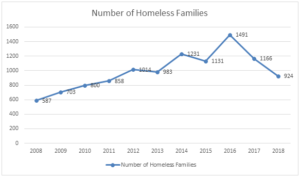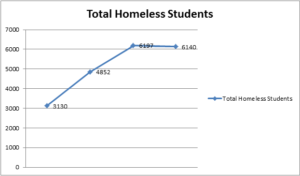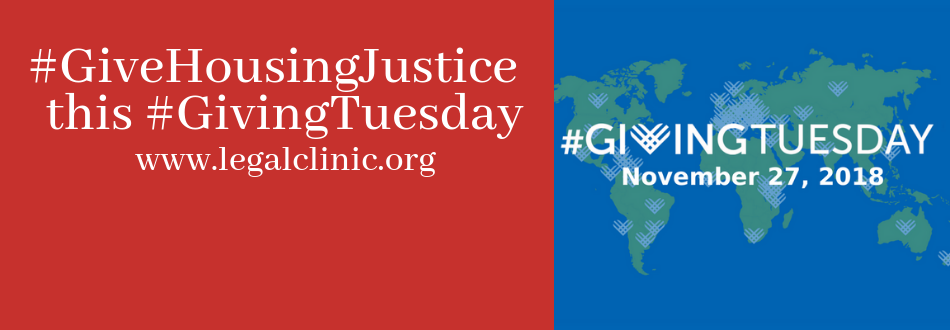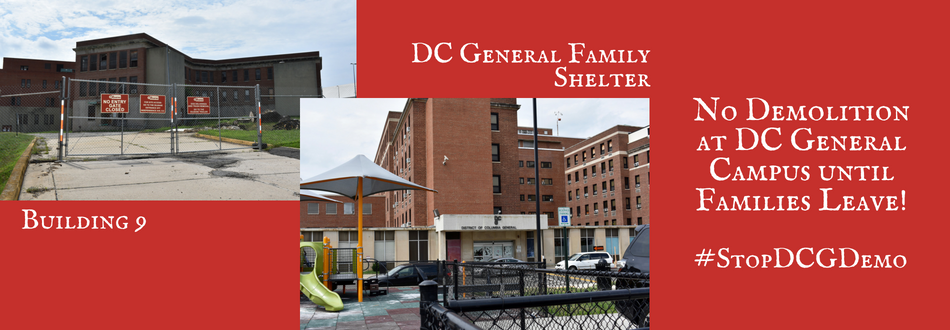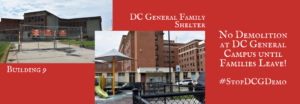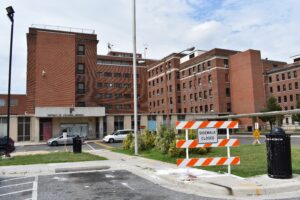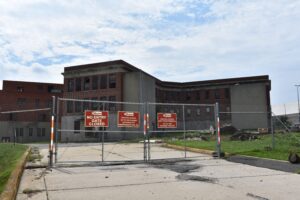The Mayor, speaking at a senior town hall:
“One thing I have learned is we talk about adding more affordable housing… But sometimes when it comes down to individual products our actions as communities and neighborhoods don’t match our concern for affordable housing… The issue of homelessness is an all eight wards problem. The same is true for affordability. We all have to be a part of the solution.”
The Mayor released her first budget proposal of her second term in office this week. After months of saying that DC needs to build 36,000 units of housing, 12,000 of which are affordable, within five years, we expected something a little more dramatic than the small increases she put forward for a few programs. To be clear, we always welcome increased spending on affordable housing, but the Mayor’s rhetoric on affordable housing far outstrips her spending. To hear her talk locally or nationally, her investments in affordable housing are transformative and effective. And while those investments may be greater than her predecessors, for which she deserves credit, it is not productive to overstate the impact of these investments while DC residents are daily experiencing the crunch of our ever-present affordable housing crisis.
We want to take a minute to really assess the Mayor’s investments, to figure out whether the investments are enough to meet the critical needs in the community, whether she is even fully funding her own plans and commitments, and whether she has fully funded the highest priorities of the community as identified and developed by the housing coalitions we engage in actively, like Fair Budget Coalition and the Way Home Campaign.
First, we can start with the Mayor’s commitment to end family and chronic homelessness, laid out in Homeward DC. As a reminder, the Mayor previously committed to ending chronic homelessness by 2017 and family homelessness by 2019. All homelessness was supposed to be “rare, brief and nonrecurring” by 2020. The good news is that the Mayor fully funded the need for Permanent Supportive Housing for families this year. However, she only funded enough Permanent Supportive Housing for 325 individuals experiencing chronic homelessness (33% of the need). That leaves 661 individuals who have a high chance of suffering severe health consequences or death without housing next year.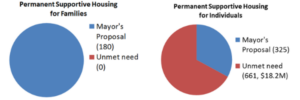
Targeted Affordable Housing is another program in the toolbox to end homelessness. The Mayor only devoted enough money to serve 80 families with Targeted Affordable Housing, even though we estimated that 984 families exiting Rapid Re-Housing or shelter would need that long term affordable housing next year. That’s 8% of the need. She only added 20 slots of Targeted Affordable Housing for individuals, out of the 154 who will need it next year. That’s 13% of the need.) That leaves 134 folks experiencing chronic homelessness on the street or in shelter who have already been found eligible for this program, but there are not enough resources.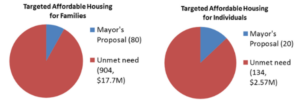
After a year of redoing our eviction system and raising awareness on the trauma of eviction, and after yet another year where our eviction prevention program ran out of funds halfway through the year, the 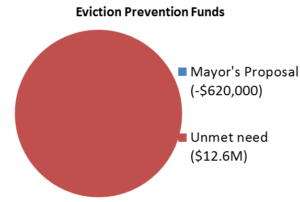 Mayor not only didn’t increase the Emergency Rental Assistance Program, she cut it by over $620,000. It’s a simple, direct program that does exactly what it’s supposed to do—prevents evictions.
Mayor not only didn’t increase the Emergency Rental Assistance Program, she cut it by over $620,000. It’s a simple, direct program that does exactly what it’s supposed to do—prevents evictions.
As you probably know, the DC Housing Authority waiting list has 40,000 households on it waiting for a voucher and has been closed for 6 years. Our clients report that they are on the list for more than 10 years before getting called for a 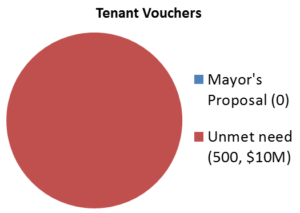 voucher, even when they have the highest preference: homelessness. Yet, once again, the Mayor put $0 towards tenant vouchers via the Local Rent Supplement Program which provides affordable housing vouchers to DC households on that waiting list. We had asked her to fund enough vouchers to serve 500 households.
voucher, even when they have the highest preference: homelessness. Yet, once again, the Mayor put $0 towards tenant vouchers via the Local Rent Supplement Program which provides affordable housing vouchers to DC households on that waiting list. We had asked her to fund enough vouchers to serve 500 households.
You probably heard that the Mayor increased the Housing Production Trust Fund from $100 million to $130 million. What you may not know is that only 40% of every dollar of the fund goes to very low income DC residents (0-30% Area Median Income (AMI)). The increase of $30 million only adds $12 million to the pot, bringing the total investment in deeply affordable housing to $52 million. That may seem like a lot of money, but producing affordable housing for the lowest income residents costs a lot of money. We had asked for $140 million devoted to 0-30% AMI, and estimated that it would build about 770 units. $52 million could build about 286 units of affordable housing, if the Mayor had put enough operating dollars in the budget, which she didn’t. Operating dollars must be matched to the trust fund dollars in order to build deeply affordable housing. We need over $8 million in operating money to actually produce those 286 units. With a mere $1.47 million, we can only hope for 50 units of deeply affordable housing.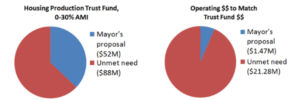
Most disappointing may be the Mayor’s failure to devote even a single additional dollar to public housing repairs. The DC Housing Authority released a report in December stating that 2500 of its units were in critical shape and needed immediate repairs to be habitable. The agency said it needed $340 million this year and $1.3 billion over ten years to stabilize the public housing stock. After a series of Washington City Paper articles on the real human consequences of living in decrepit, mold- and lead-filled public housing, a letter from tenant advocates urging significant investment, and the DC Housing Authority 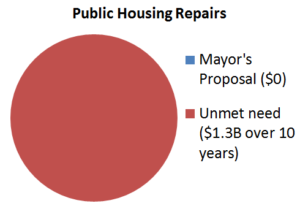 itself lobbying for funds, it is remarkable that public housing didn’t make it to the top of her housing priority list.
itself lobbying for funds, it is remarkable that public housing didn’t make it to the top of her housing priority list.
What about the Mayor’s new “workforce” housing program? It’s $20 million for people who make up to $140,000 or 120% of AMI. Lots of our clients work and need affordable housing, but far far more DC residents need assistance at lower-income thresholds than this, even among those who work. While we support every single resident in DC having access to housing that is affordable for their means, we believe, and data supports this, that the greatest need for government-subsidized housing is for extremely low-income residents. Until DC makes a larger dent in its homelessness and displacement crisis, we must prioritize funding deeply affordable housing first.
We are disappointed that the Mayor’s investments in affordable housing and ending homelessness to do not rise to the level of her rhetoric on these topics. Luckily, the Mayor’s proposal is just that, a proposal. The DC Council is now tasked with ensuring that the budget reflects DC residents’ priorities. But before we start focusing on the Council, don’t forget to drop the Mayor a note to share whether you think she invested enough in affordable housing: @mayorbowser (Twitter) or mayor@dc.gov (email). We’ll continue updating this blog as we learn more.
For more info, check out:
- The Fair Budget Coalition’s report card on the Mayor’s budget proposal.
- DC Fiscal Policy Institute toolkits on affordable housing and homeless services
Take action! https://actionnetwork.org/letters/stop-displacement-repair-public-housing-and-end-homelessness?source=direct_link&
